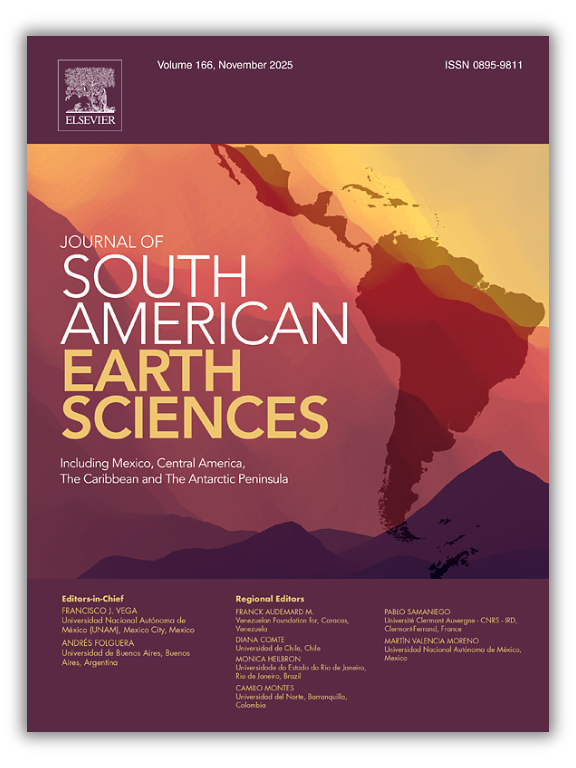Carlos Conforti Ferreira Guedes, a geology professor at the Federal University of Paraná in Brazil, came across a paper in the Journal of South American Earth Sciences earlier this year with irrelevant, and in some cases nonexistent, references.
Made-up citations can indicate the use of generative AI in crafting the paper – but another detail caught his attention as particularly odd: The researchers on the paper, a study on the transformation of the Brazilian coastline, all listed affiliations in India. Guedes reached out to one of the editors-in-chief of the journal at the time, Andres Folguera, on March 10 to notify the journal about the issues.
As Guedes and his colleagues noted in a May 19 blog post on the Brazilian Association for Quaternary Studies (ABEQUA) website, “there were no citations of work conducted in Brazil or by researchers who had previously worked in the region.”
According to the August 3 retraction notice, the authors “were asked to comment upon the presence of these references in their work and acknowledged that the references were not correct.”
Phani Babu K, the corresponding author on the paper and assistant professor at Vishnu Institute of Technology in Bhimavaram, did not respond to our request for comment.
The journal recently changed its editorial board, which Monica Heilbron, one of the journal’s two editors-in-chief, told Guedes may have contributed to why it took five months to retract the paper.
Guedes and his colleagues also looked at other articles in the journal for similar problems and found 11 papers with authorship issues, citation concerns and signs of potential data fabrication. He raised the concerns with the journal on August 6, according to emails we have seen.
Rebecca Clear, a communications director from Elsevier, confirmed JSAES “became aware of some concerns” and told us an investigation “is underway.” The editors-in-chief did not respond to our request for comment regarding the peer review process or post-publication spot checks.
Among those Guedes brought to the attention of the journal is a 2024 paper on urban sprawl in Vila Velha, a city in Brazil. The article has “existing citations that are unrelated to the text” and “nonsense regional references,” Guedes told us. The references include urban dynamics papers for Italy, India and Ethiopia, among others.
Guedes told us several of the papers show “invented geology” or “fabricated” data. He said two of the figures in a January paper — figures 4 and 3 — had “fabricated rainfall data.” He also pointed out a September 2024 paper, in which authors claimed João Pessoa, a city in Brazil, had experienced erosion and elevation gains of “tens of meters over a decade,” which he described as “unrealistic results.”
All of the authors on the papers were from universities in Saudi Arabia and India, including 14 from universities researchers identified this January for anomalous citation metrics, including King Saud University in Riyadh and King Khalid University in Abha, Saudi Arabia. Only one paper listed two researchers from the same university. And all except one list a researcher with affiliations at Princess Nourah Bint Abdulrahman University, also in Riyadh and also on the list for anomalous metrics. There are 97 retracted papers in the Retraction Watch Database that include authors from that university.
According to Clarivate’s Web of Science, JSAES has increased its annual article output in the last 10 years, publishing 149 papers in 2015 to a high of 692 in 2021 to more than 400 in the last three years. The journal has published over 300 articles so far this year.
Like Retraction Watch? You can make a tax-deductible contribution to support our work, follow us on X or Bluesky, like us on Facebook, follow us on LinkedIn, add us to your RSS reader, or subscribe to our daily digest. If you find a retraction that’s not in our database, you can let us know here. For comments or feedback, email us at [email protected].

Unethical use of Gen. AI has become a curse. Previously, editors have to scan manuscripts for plagiarism. Now, AI content detection added the burden. Many editors know less about AI generated citations and content. They should update their knowledge to sustain in current challenging technological advances.
Both editorial board and reviewers failed 11 times in this case.